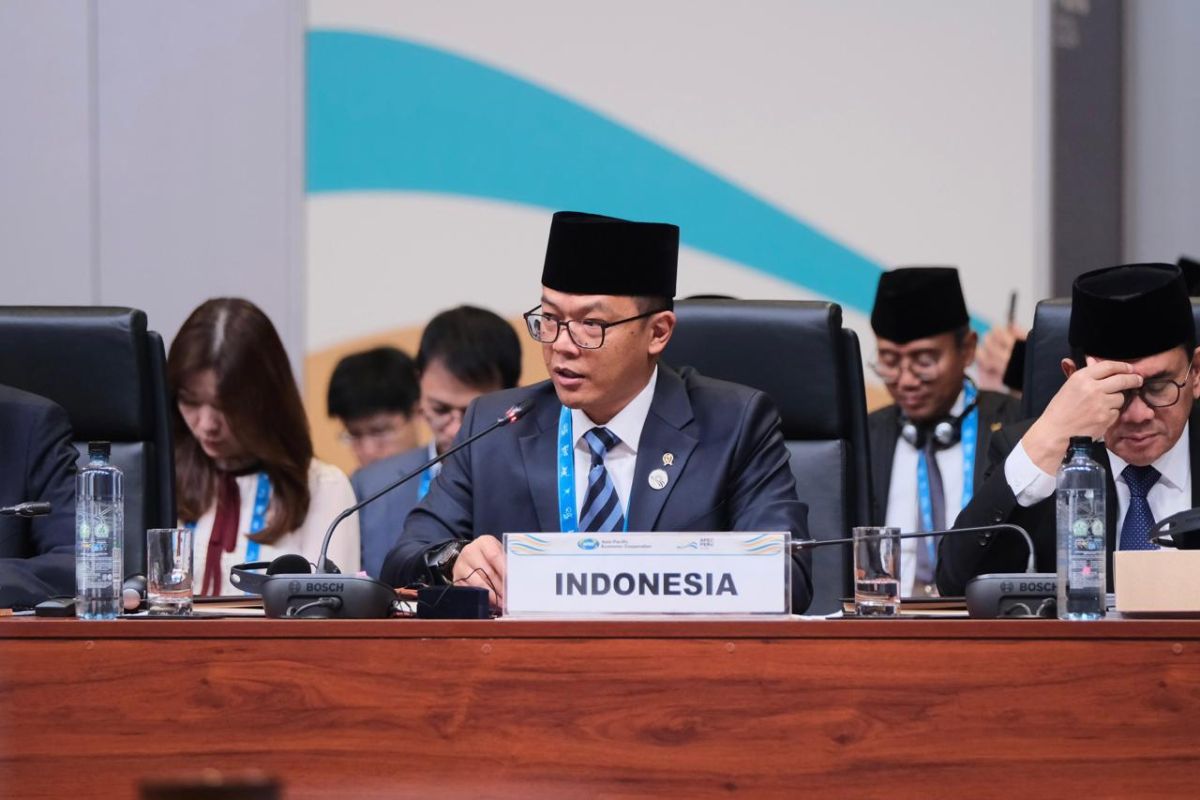Headline: Indonesia Advocates for Digital Innovation at APEC Meeting
Opening:
At the recent APEC Ministerial Meeting held in Lima, Peru, Indonesian Foreign Minister Sugiono urged member economies to embrace innovation and digitalization as vital elements for economic transformation. As Indonesia aims to become one of the world’s top five economies by 2045, Sugiono emphasized the importance of building robust digital infrastructure and bridging societal gaps to ensure equitable growth, particularly for marginalized communities.
Indonesia’s Vision for Economic Transformation
On November 14, during his address at the APEC Ministerial Meeting (AMM), Sugiono communicated a powerful message: "As we aspire to join the world’s top five economies by 2045, we must harness innovation and digital technologies to bridge divides and uplift all segments of society.” This ambition underscores Indonesia’s commitment to leveraging digital advancements to foster inclusive economic development.
The Challenge of Inequality
Sugiono articulated a pressing challenge facing Indonesia and the broader Asia-Pacific region: the digital divide. Despite being home to some of the most advanced digital economies, roughly 1.7 billion people across the Asia-Pacific lack internet access, according to the International Telecommunication Union (ITU). Furthermore, nearly 70 percent of workers in low- and middle-income countries lack basic digital skills. This disparity creates barriers for many individuals, notably women, who are 20 percent less likely to access the internet, exacerbating economic and social inequities.
"The paradox of our region is stark," Sugiono pointed out, highlighting that while some areas excel in digital innovation, many others are at risk of being left behind. This scenario poses a significant threat to significant population segments that could otherwise benefit from the burgeoning digital economy.
Indonesia’s Digital Village Initiative
To combat these challenges, Sugiono introduced Indonesia’s Digital Village Initiative—a transformative program designed to equip rural communities with the skills and tools necessary to thrive in the digital economy. By providing targeted support measures and training programs, Indonesia aims to ensure that underserved populations can participate fully in this economic landscape.
“This program can bridge the digital divide by ensuring that vulnerable and marginalized groups can access opportunities in the formal economy,” Sugiono explained. By investing in digital literacy and infrastructure, the Indonesian government is working towards a future where all citizens can harness the power of technology.
Combatting the Gender Gap
Addressing gender disparities within digital access is also a primary focus for Indonesia. Sugiono asserted that gender-responsive policies are crucial for empowering women in the workforce. Such measures would facilitate affordable access to devices and skills training, nurturing an inclusive strategy that integrates women into the growing digital economy.
Fostering Resilience through Upskilling
In addition to creating digital access, the Indonesian government has taken initiatives to bolster economic resilience. These include:
- Enhanced financing options for micro and small businesses.
- Entrepreneurship training programs to foster essential skills.
- Social security protections for informal sector workers.
Sugiono emphasized the importance of these initiatives, stating, “By bridging the digital divide, we will unlock immense potential for growth and resilience. Significant potential that demonstrates the region’s capacity to lead the digital innovation."
Global Leadership in the Digital Economy
Sugiono concluded his address with a rallying call for APEC nations to collaborate in ensuring that the Asia-Pacific region can compete as a major player in the global digital economy. As the region navigates the complexities of digital transformation, it is crucial to foster a collective commitment to inclusivity and development.
"Let us ensure no one is left behind as we embrace the digital era and strive to become global leaders in the digital economy," he urged.
Engage with Us
The comprehensive approach highlighted by Foreign Minister Sugiono not only places Indonesia at the forefront of global digitalization but also represents a commitment to inclusive economic strategies. As we continue to explore the implications of these initiatives, we invite our readers to share their thoughts and experiences regarding digital access and innovation.
For more insights, check our related articles on Indonesia’s Dynamics in Global Trade and Technological Advancements in Emerging Markets. You can also find additional information on digital economy strategies at the International Telecommunication Union website.
In crafting this narrative for our tech-savvy readers, we emphasize the pressing need for innovations that cater to all societal levels, bridging the digital divide while fostering inclusivity. Let’s continue the conversation on how nations can collectively elevate their position in the burgeoning digital landscape.

